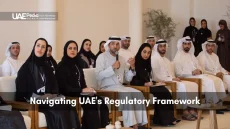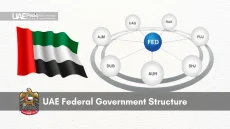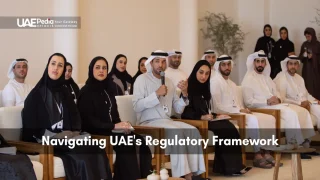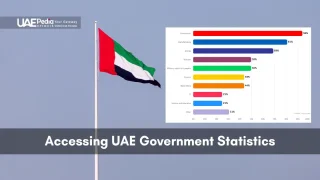Did you know the UAE’s public administration has changed a lot? It’s now run in a new way. The UAE became a constitutional federation in 1971. Since then, it has made its government stronger and more modern.
The UAE Constitution has 152 articles. It talks about the country’s goals and people’s rights. This has helped the UAE make big changes in how it’s run. Get ready to learn about the UAE’s political system. You’ll see how it keeps getting better.
Historical Evolution of UAE’s Political System and Constitutional Framework
The United Arab Emirates (UAE) has a rich history. It started as a constitutional federation in 1971. This united seven emirates under one government.
Formation of the Constitutional Federation
The UAE Constitution was made in 1971. It has 152 articles. It sets up the country’s government and rules.
Key Components of the UAE Constitution
- Defines the UAE as a sovereign, independent, and federal state
- Establishes a Supreme Council as the highest legislative and executive authority, composed of the hereditary rulers of the seven emirates
- Outlines the powers and responsibilities of the President, Vice President, and the Council of Ministers
- Guarantees fundamental rights and freedoms, such as equality, personal liberty, and the inviolability of the home
- Lays out the federal judicial system and the allocation of powers between the federation and the emirates
The UAE’s federal structure balances centralized authority with emirate-level autonomy, serving as a model for Gulf Cooperation Council states. Ref.: “Al-Suwaidi, A. & Peterson, J.E. (2022). Federalism in the Gulf: The UAE Experience. Middle East Journal.”
Fundamental Rights and Administrative Structure
The UAE Constitution protects citizens’ rights. It ensures equal opportunities and social justice. The country has a federal system with each emirate having its own power.
| Statistic | Value |
|---|---|
| 2024 Population Estimate | 11,027,129 |
| Ethnic Groups (2015) |
|
| Religion (2020) |
|
Governance Reforms Shaping UAE: Modern Administrative Transformations
Recently, the UAE has made big changes in how it governs. These changes aim to make rules stronger and improve its place in the world. The UAE has set up new offices to fight money laundering and terrorism financing.
It has also updated laws to fight these crimes better. Free trade zones in Abu Dhabi and Dubai have made rules to stop money crimes. The Central Bank of the UAE has given advice on how to follow these rules.
There are now stronger ways to catch and punish financial crimes. This is to meet demands from the Financial Action Task Force and the European Commission.
The UAE is also getting better at using technology. It’s using digital strategies, artificial intelligence, and blockchain. Studies show that using technology helps manage resources better.
But, there are still challenges. Some people in the public sector are afraid of change. They worry they might lose their jobs.
| Key Drivers of Governance Reforms in the UAE | Outcomes of Administrative Reforms |
|---|---|
|
|
The UAE has made big changes using technology. But, the public sector has been slow to adopt these changes. They want to improve services and make things more efficient.
Success in digital transformation depends on many things. These include how well the organization is run, IT skills, and the environment. The UAE is using artificial intelligence in government services.
Now, 90% of government services are digital. This is expected to increase the GDP by up to 35%. It will also cut government costs by 50%.
Conclusion
The UAE is making big steps in improving its government. It wants to make things more efficient and open. This will help the country compete better on the world stage.
The UAE is working hard to grow its economy while keeping rules strong. This shows it’s serious about improving its government.
But, the UAE will face new problems as it keeps improving. It will need to deal with tough issues like enforcing rules and handling more foreign money. The government will have to find a way to balance these things.
The UAE is getting better at managing its public sector. It’s becoming a big player in the world economy. But, it still has to face many challenges.
The UAE needs to keep working on making things more open and efficient. It must also make sure it can keep growing in a healthy way. The UAE’s efforts to improve its government will be key to its future success.



















